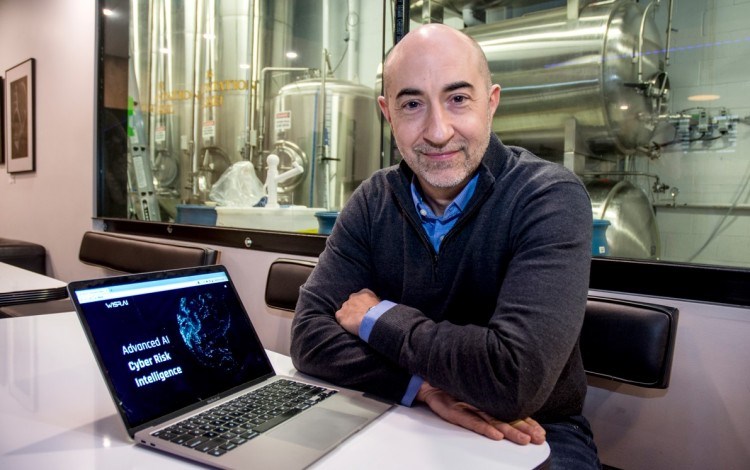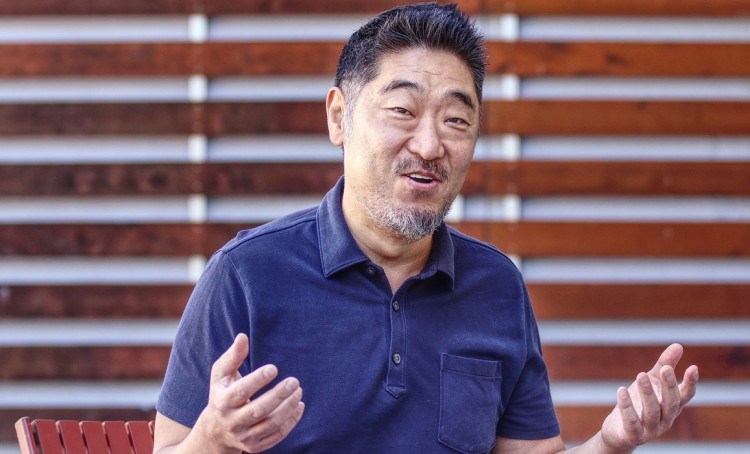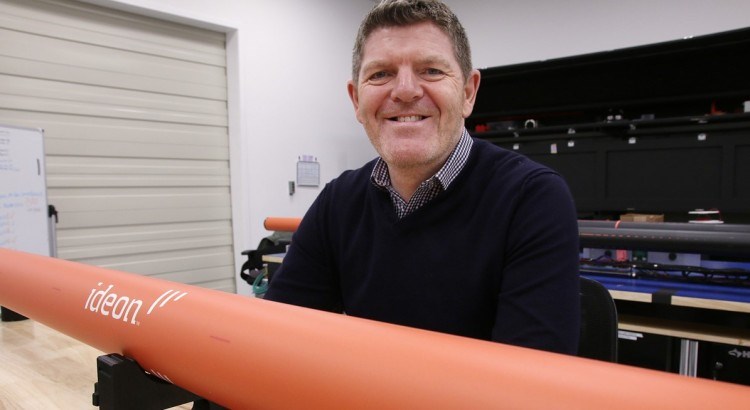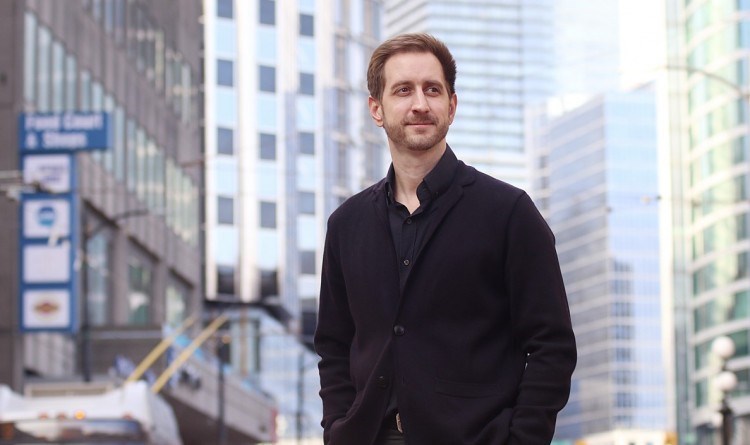Artificial intelligence (AI) is the 2023 newsmaker of the year for the B.C. business community because of its rapid rise from nascency to being a technology that almost all executives are either using or fear that they should be using to protect their ventures’ futures.
Many corporate leaders in 2023 learned that using AI could make processes more efficient, thereby saving time and reducing costs. This made workers anxious, and labour unions antsy to include new protections for members in collective agreements.
A Glacier Media and Research Co. poll in October found 77 per cent of those surveyed were alarmed by AI’s potential to take away jobs. That proportion rose to 80 per cent among those in the lowest household income bracket.
Disagreement on how Hollywood producers could use AI was part of what prompted film-sector writers to go on strike for 148 days, and for actors to go on strike for what was largely an overlapping 118 days.
That work stoppage caused a near shutdown in B.C.’s film and television sector, which employs about 88,000 workers in the equivalent of 40,000 full-time jobs – most of which are in Metro Vancouver, according to industry advocate Creative BC.
Research from the since-disbanded Vancouver Economic Commission (VEC) estimated that the industry spent a record $4.9 billion on film, TV, visual effects and animation in B.C. in 2022.
AI’s rapid rise also spurred Canada, and other governments around the world, to rush to regulate how citizens and companies use AI.
Minister of Innovation, Science and Industry François-Philippe Champagne in September unveiled a voluntary code of conduct for how Canadians should use advanced generative AI, and he promised that this code would complement Bill C-17, which is making its way through Parliament. The new law regulates how residents and companies safely develop AI in the country.
Regulation, however, is a double-edged sword, serial entrepreneur and Wisr AI CEO Rob Goehring told BIV.
It is good because it can protect humanity from unexpected negative consequences, he explained. Regulation can be bad because rogue nations may not follow international regulations, or enact their own, and could therefore gain technological advantages, he added.
“The situation with regulating AI is like having snowballs from Canada, the U.S., China, India and others – all rolling downhill,” said Goehring, who is also the founding chair of BC Tech’s AI C-Council, which includes C-suite executives at growth-scale stage AI companies.
“The U.S. is probably ahead. If the U.S. government stops that snowball for even a couple minutes, China and other countries are going to roll ahead.”

A lengthy article on the need to regulate AI may have been the last writing from former U.S. Secretary of State Henry Kissinger, who died Nov. 29.
His Oct. 13 article, entitled “The Path to AI Arms Control” in the journal Foreign Affairs, equated the need for great powers to work together to constrain advances in the “terrifying technology” that is AI with the need for those powers to work together to constrain nuclear proliferation decades ago.
Kissinger urged U.S. President Joe Biden to hold a summit with Chinese President Xi Jinping after the November Asia-Pacific Economic Cooperation meeting in San Francisco – something the two wound up doing.
Biden and Xi at the meeting agreed to establish formal government-to-government discussions on how to use AI.
Kissinger said the need for great-power cooperation on AI arises from a similar understanding of the risk of mutually assured destruction as was present during the Cold War arms race.
OpenAI kick-starts surge in AI interest
When OpenAI in November 2022 launched a free and publicly available AI-powered conversational robot, dubbed ChatGPT, countless millions of people were astounded with how the bot could almost in real time produce complex poems, summaries and longer essays to explain phenomena.
ChatGPT was the sensation that caused AI use to soar.
Deloitte research director Duncan Stewart in August compared the rise of AI to the metaverse, which was a hot technology niche in 2022.
“The number of people actually using generative AI today is really millions of times more than the number using the metaverse,” Stewart told BIV at the time.
“That is a stunning difference. We’re not talking about 10 times more. We’re not talking 100 or 1,000 times more. It may even be tens of millions of times bigger than the metaverse.”
Some generative AI products, such as ChatGPT, already have more than 100 million monthly users, Stewart said.
Companies that have embedded ChatGPT into their core products have applications that have close to 100 million users, he added.
Indeed, the uptake in AI use alone merits the technology being BIV's newsmaker of the year.
“Hundreds” of B.C. companies now use AI as part of their core offering, Goehring said.
In 2023, he noticed that the pace of entrepreneurs creating new AI start-ups accelerated.
“The number of new companies is exploding,” he said.

Goehring said he attended a private dinner that Amazon.com Inc.’s (Nasdaq:AMZN) AWS division hosted in November.
While he saw countless familiar faces, he met many new people who headed AI ventures that impressed him, he said.
Many dozen B.C.-based companies that use AI as part of their core offering have paid OpenAI to be able to integrate its ChatGPT into their offerings, Goehring estimated.
That reliance on ChatGPT became a source of concern this fall.
Executives at those companies feared the fallout when OpenAI’s board on Nov. 17 fired CEO Sam Altman for allegedly not being fully open with them about operations. Altman co-founded the venture with controversial serial entrepreneur Elon Musk, and others.
Support for Altman swelled among employees in the weekend following the board's Friday putsch, when reports surfaced that Altman was joining Microsoft Corp. (Nasdaq:MSFT).
Speculation swirled that there could be a massive OpenAI employee exodus, which would result in the company being strapped for resources and lead to its ChatGPT being a target for hackers – threatening operations for those dozens of B.C. companies.
Investors hop on the AI bandwagon
Stock market investors in the early days of 2023 started to fear missing out on the biggest market opportunity since the smartphone, if not the Internet. They sent share prices soaring for any company viewed as even tangentially exposed to emerging AI opportunities.
Some companies changed corporate names to include the acronym AI – a phenomenon like when companies adopted dot-com appendages when Internet adoption started to become mainstream.
Vancouver’s Verses Technologies Inc. (NEO:VERS; OTCQX:VRSSF), said in March that it was officially becoming Verses AI Inc. “to better reflect the focus of the company’s business.” Its share price more than doubled within a little more than two months before enduring a decline to well below its pre-name-change value.
Kelowna’s Gallagher Security Corp. (CSE:GLL) in July changed its name to Genesis AI (CSE:AIG).
Other, more substantial companies in the AI space more than tripled in value.
The most notable of those might have been California-based chip-maker Nvida Corp. (Nasdaq:NVDA) simply because of its size – its market capitalization passed US$1 trillion in late May.
Established technology giants, such as Alphabet Inc. (Nasdaq:GOOG, GOOGL) and Microsoft, saw large share-price pops as investors wagered that those companies were poised to take advantage of what would be a generative-AI-spurred societal transformation.
Microsoft in January injected US$10 billion in OpenAI, following up on its US$1 billion investment in 2019 and the US$2 billion it pumped into the company in 2021.
In February, Microsoft integrated OpenAI technology into its Bing search engine.
That same month saw Google release its chatbot, Bard, to a limited number of users. It endured derision for glitches and investors pushed Alphabet’s share price down by more than 17 per cent in the following few weeks.
Investor sentiment for Alphabet became positive in the months leading up to December, when CEO Sundar Pichai released a video showing Alphabet's Gemini AI software model.
Critics then had a field day when Alphabet was forced to acknowledge that the video was heavily edited and that the experience shown was "aspirational."
Analysts expect Alphabet to launch a more advanced model of Gemini in early 2024.
Other evidence that AI was the story of the year is that Alphabet, Amazon and other companies in 2023 launched courses and started offering micro-credentials in niche areas such as being a "prompt engineer," Goehring said.
That training might be like education in the nascent years of the Internet, when people started to learn how to use online search engines.
Microsoft co-founder and visionary Bill Gates added fuel to the AI frenzy in March when he wrote a blog post asserting that AI is “the most important advance in technology since the graphical user interface” and that it was as “fundamental [to societal advance] as the creation of the microprocessor, the personal computer, the Internet, and the mobile phone."

B.C. AI companies jockey for future success
One of the biggest surprises Vancouver-based CoPilot AI CEO Jesse Chen received in 2023 was likely in September, when Microsoft announced that it was branding its publicly facing AI technology Copilot – a name choice likely to cause brand confusion and weaken CoPilot AI’s search engine optimization (SEO).
“That’s some unfortunate luck,” said Chris Breikss, who was co-founder and president at 6S Marketing in 2015, when Apple Inc. (Nasdaq:AAPL) released its iPhone 6S, spurring brand confusion and weakened SEO for Breikss’ venture.
“One of the challenges when naming a company is that you run that risk that someone else is going to use the name, especially if you're using something like ‘CoPilot,’ which is a fairly broad term.”
Chen did not respond to multiple requests for an interview to answer whether he plans to change his 52-employee company’s name.
Breikss joked that when he changed the name of 6S Marketing in 2018, he did not learn his lesson.
“We renamed our company Major Tom, which has a very loose reference to David Bowie’s ‘Space Oddity’ song.”
Major Tom uses AI in some advertising campaigns, he added.
Breikss is also on the board of directors at Secur3d, which is a Yaletown-based venture that uses AI to help digital-content creators protect their intellectual property.
A designer might create a three-dimensional digital running shoe that is for sale in the metaverse or on digital gaming platforms. Secur3d’s technology could then help that designer identify situations where someone has broken IP laws by copying elements of that shoe and integrating it into their own products, Breikss explained.
Secur3d’s CEO Otis Perrick described his 10-employee company as “pre-revenue,” but he forecast that the company would generate “tens of millions of dollars” in revenue next year and be profitable by the end of the year.

His venture has attracted $1.6 million from various investors in the past 18 months, and is looking to close a $5-million capital raise in early 2024, Perrick told BIV.
Other B.C.-based AI companies are also attracting investment.
Variational.AI, headed by CEO Handol Kim, has attracted about US$3.5 million in venture funding. He told BIV yesterday (Dec. 19) that his company has deals with multiple large pharmaceutical companies that are likely able to be made public soon, he said.
Victoria’s Certn bagged a US$30-million Series B financing in April that pushed its venture funding to more than US$114 million. That company uses AI to conduct background checks for customers.
BIV determined in September that Certn was B.C.'s fastest-growing company between 2018 and 2022, ranked by revenue, at 18,289.2 per cent to $33,500,000.
Another Victoria-based AI company, Niricson, in August secured more than $10 million in a Series A financing. It uses AI to detect defects in infrastructure.
Vancouver’s Quandri uses AI to automate repetitive tasks in the insurance industry and landed US$8.5 million in funding in June.
Steve Lowry, executive director of the AI network of B.C., told BIV that while technology companies have found it harder to attract venture capital in the past couple years, “companies that have a compelling AI story are still getting venture dollars thrown at them.”

Lowry held a full-time job at Silicon Valley Bank until earlier this year, and has since shifted to being mostly full-time as an advocate for the AI sector in B.C.
Among the fast-growing B.C. companies that use AI as part of their core offerings is Ideon Technologies, which achieved 914 per cent revenue growth in the three years up to 2022, CEO Gary Agnew told BIV.
He would not disclose how much Ideon generates in sales but he explained that his company uses AI to help mining clients by taking information gleaned from old maps, old rock-sample data, images and other sources to create a more fulsome map of sub-surfaces.

“We want to ingest any available dataset – no matter how old, no matter what format – and be able to turn that unstructured data into much more structured data,” Agnew told BIV.
This.Fish, CEO Eric Enno Tamm told BIV that his Vancouver-based company uses AI to help fish-processing clients determine likely yields, based on historical purchases from individual suppliers about specific fish species caught in certain areas.
“We've built a yield-prediction model for a salmon processor here in Vancouver and a tuna processor in Asia,” he said.
He would not disclose his company's revenue, but he said he expects sales to increase between 60 and 70 per cent next year, when This.Fish becomes profitable.
Mark Trivett, managing partner at the investment firm Defined, told BIV that his firm focuses its investments on the "building blocks that enable automation."
Investments this year included unspecified amounts in Quandri and in Vancouver's Inverted AI.

"Defined is set up to support founders, at the earliest stages, who are advancing what I call the automation frontier, which is when machines, humans and data come together to solve problems in radically new ways," Trevitt said.
"The release of new models is compounding, and we are in quite an exponential curve of progress."





